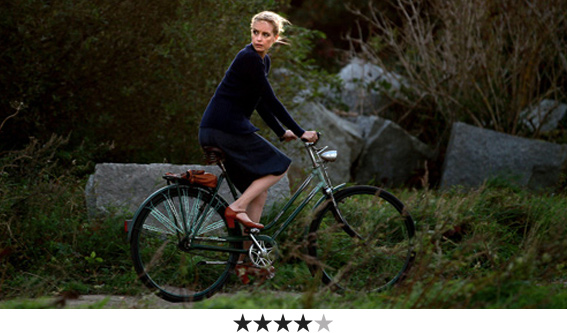Review: Barbara

Winner of Best Director at the Berlin Film Festival 2012, this slow-burning Cold War drama follows a doctor torn between the West, where her lover has emigrated, and her obligations in the East. Read more and find movie times.
In the recent past, communist-era Germany has served as the inspiration for entertaining crowd-pleasers such as Goodbye, Lenin! and The Lives of Others: the former poked fun at the phenomenon of ostalgie (nostalgia for East Germany), while the latter entered the world of Stasi spying to produce a paranoid Orwellian thriller.
Christian Petzold’s Barbara, however, takes a far more opaque route into the German Democratic Republic, eschewing narrative comforts to spin a low-key, tenuous romance characterised by its sparse, deliberately paced storytelling and seeming lack of score.
Petzold subtly builds the film around its central character of Barbara Wolff (Nina Hoss), locking the viewer into her perspective of suspicion and fear as a doctor who’s been banished to a rural hospital after getting caught trying to exit the GDR.
Hoss’ performance is hypnotic, a tautly understated modulation of Barbara’s cautious adjustment into her new work environment where she’s supervised by Dr. Reiser (Ronald Zehrfeld), a kindly physician who soon develops feelings for her.
The oppressive atmosphere of the communist regime is ever-present: cinematographer Hans Fromm’s uncluttered compositions highlight Barbara’s aloneness and unease as she lives under the watchful, invasive eye of the Stasi. But Petzold’s film also takes a more interesting, complicated turn into greyer areas when she begins to weigh up her growing sense of responsibility to her patients against her desires to escape to be with her West German lover.
Ultimately transcending itself as another work of Eastern Bloc gloominess, Barbara emerges a hopeful story about a quietly seismic self-awakening.
















